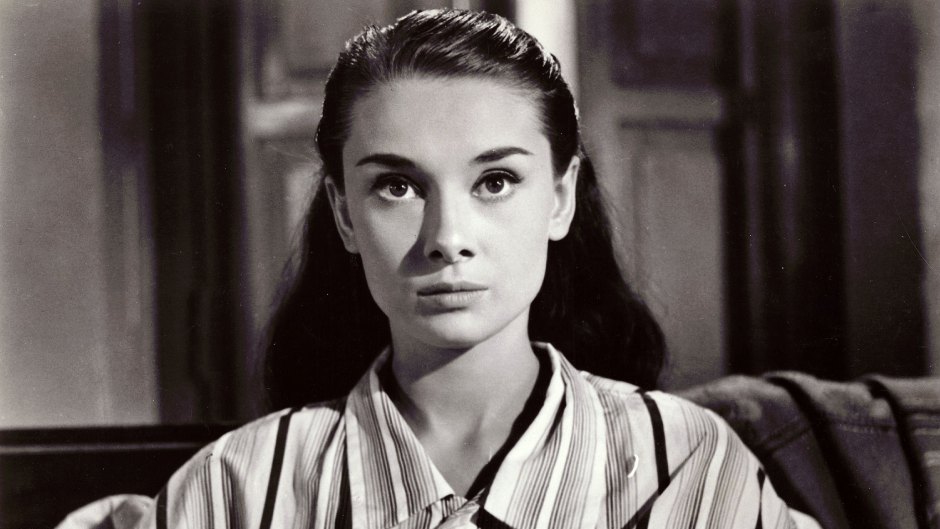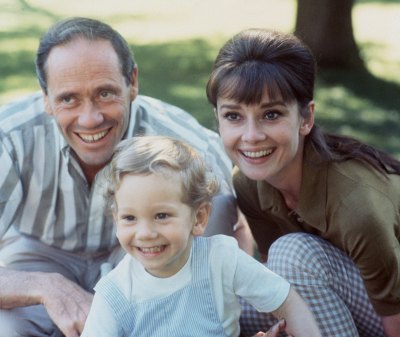
Paramount/Kobal/Shutterstock
Audrey Hepburn Turned Her Childhood Pain Into a True Purpose in Life: It ‘Made Her Very Proud’
Audrey Hepburn‘s iconic career didn’t take away the pain she endured throughout her childhood. As she aged, though, the Breakfast at Tiffany’s alum turned the heartbreak she felt over her father’s absence into a life’s purpose that made her “very proud,” her loved ones exclusively share with Closer Weekly.
Flash forward to the late 1960s, Audrey had retreated to a Swiss farmhouse she christened Peaceful, or “La Paisible” in French. “She would pick fruit to make jams, run the dogs in the fields, have a whiskey at 5:00 p.m. and cook a great plate of pasta,” her son Sean Hepburn Ferrer, 60, recalls in the latest issue of Closer, on newsstands now. “The secret to her happiness was simple and unpretentious.”

The Hollywood icon and star of beloved classics, including Break Holiday, clung to these small moments of joy as a way of warding off the sadness that had followed her since girlhood. “Being adored by millions of people worldwide didn’t matter to her in the same way as finding true, unconditional love did,” Helena Coan, director of the new documentary Audrey: More Than an Icon, tells Closer.
“She constantly transformed herself and her life through this perennial search of love.” At age 6, Audrey and her mother, Ella, were abandoned by her Fascist-sympathizing father, Joseph. “When she was a child, she really idolized him,” Emma Ferrer, Audrey’s granddaughter, tells Closer, explaining that Audrey was traumatized by the loss.
Four years later, Audrey and Ella became trapped in the Netherlands after the German invasion. “The last winter of the war, there was nothing to eat and no oil for heat. They made bread from peas and ate tulip bulbs,” relates Sean, who with his wife, Karin Hofer, dramatizes Audrey’s childhood yearning for a better life in an uplifting new children’s book, Little Audrey’s Daydream: The Life of Audrey Hepburn.
Things did become better for Audrey following the war. A chance meeting led to her being cast in Gigi, a play in London’s West End. Two years later in 1953, she starred in Roman Holiday, which would win her a Best Actress Oscar. Stardom, however, couldn’t replace the deep melancholy Audrey carried. “She said that her father leaving made her insecure for life,” says Coan.

Audrey’s first husband, actor Mel Ferrer, whom she wed in 1954, felt it. Hoping for a reunion that would bring his wife closure, he tracked down Joseph through the Red Cross. “They flew to Ireland and [Audrey] met him, but he was cold. It was just who he was,” says Sean. “She was devastated, but she still took care of him [financially] until the end of his life.”
Sadly, Audrey also never found the long-term happiness and security she craved in marriage. “She loved my father even though he was a complicated and difficult man,” says Sean, who was born in 1960 following several miscarriages. His parents split in 1968. Audrey’s second husband, Italian psychiatrist Andrea Dotti, gave her another son, Luca Dotti, 50, but her beau was a serial philanderer and the marriage ended in 1982. “There were times in her life, starting with her father and going through her second marriage, when she didn’t understand why her love was unrequited,” says Sean.
When movie stardom and marriage failed to bring Audrey the love she longed for, she put all her efforts into raising her sons. “It was not a sacrifice,” Audrey once said about quitting the movie business when they were young. “It’s what made me happiest, to stay home with my children.” Her childhood disappointments “affected her relationship with her children in a good way, because she wanted to be a present, loving mother,” Coan says.
In 1989, with her sons grown up, Audrey became a Goodwill Ambassador for UNICEF, beginning what she would call her “second career.” Helping children who were victims of war, deprivation and abandonment, as she had been, became her life’s purpose. “To have the opportunity to give something back in a meaningful way as an ambassador for UNICEF made her very proud,” Sean says. “She was very thankful for the opportunity.”

In the last 13 years of her life, Audrey also found the unconditional romantic love she’d always longed for in Dutch actor Robert Wolders, the widower of actress Merle Oberon. “I trust him. I trust his love. I never fear that I’m losing it,” she said before her death in 1993.
Nobody’s life, not even that of a Hollywood icon, is perfect, but Audrey never gave up searching for the love she desired. “To know happiness, you have to know sadness,” explains Sean. “When she died at 63, she was very much at peace.”








































